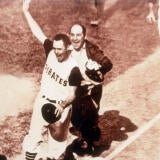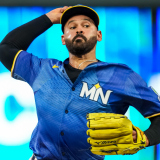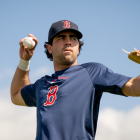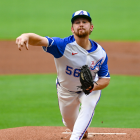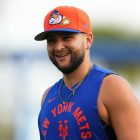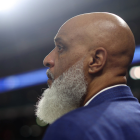
Hard-throwing Volunteers reliever Ben Joyce tops list of MLB Draft's most polarizing players
Some players inspire a range of evaluations greater than the average prospect
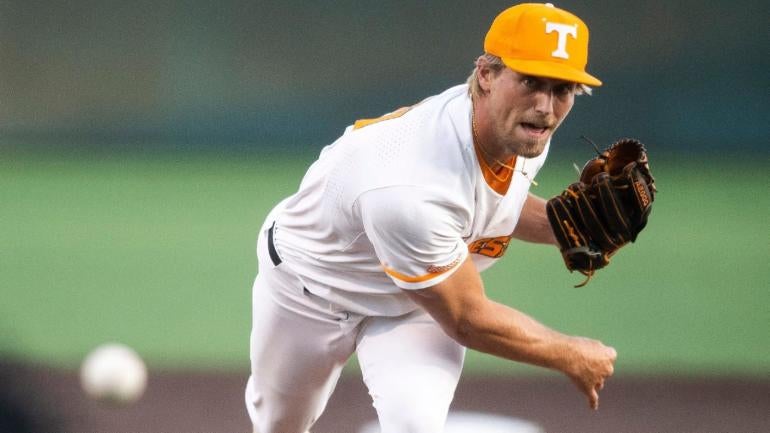
Major League Baseball's amateur draft is less than a month away, and CBS Sports is in the process of previewing the upcoming class. Last week alone, we revealed our top 30 rankings and our initial mock draft.
Today, we're going to continue on along this road by breaking down five players who are considered "polarizing." What, pray tell, does that mean? Simply that there's not a consensus on when they should be selected due to some facet (or facets) of their game. To state the obvious: that does not mean these players are bad, or that they aren't worthy of being selected early in the draft; it just means evaluations of these players are prone to fluctuation.
Do note that for the purposes of keeping things fresh, we elected against including any player who was ranked in our top 30, and that the players below are listed in order of their perceived polarity.
1. Ben Joyce, RHP, Tennessee
Joyce is going to break some models, and, potentially, some mock drafts. He has a monster fastball and slider, with 43 of the former checking in at 100 mph or above during the NCAA tournament. (He topped out at, um, 105 mph during the regular season.) His heater also features good rise and is delivered from a lower arm slot, a sought-after combination these days. Teams who attempt to quantify stuff -- i.e., all of them -- are going to have trouble containing their excitement at what Joyce brings to the table. He's on here anyway because there's never been a consensus on how early is too early to take a reliever, and because teams will have drastically different timetables on when they'd expect him to reach the majors. Keep in mind, he's thrown just 32 innings over the last two seasons due to his role and his past Tommy John surgery. A team who thinks he could reach the majors soon, perhaps even this year, might be tempted to draft him earlier than anyone else would entertain.
2. Jud Fabian, OF, Florida
Fabian returned to Gainesville for another season after a whiff-filled 2021 campaign caused him to drop to 40th in last summer's draft. He made the most of his second chance, raising his OPS by nearly 100 points and reducing his strikeout rate from 29 to 22 percent. Combine his up-trending performance with his skill set -- he's a good center fielder with plus juice and a keen eye -- and he would seem to be in the running for a first-round selection. He's on here because there's still something off about his game. Batting average holds greater predictive value at the collegiate level than it does in the majors, and Fabian's .239 mark is unthinkably low for a well-regarded prospect. His average wasn't the result of his environment, either; he ranked eighth among the 12 Gators with at least 100 plate appearances. Fabian is likely to go within the top 40 picks because of his upside, but there's more downside here than it seems.
3. Brock Jones, OF, Stanford
Jones is a former football player whose game features plenty of raw power and more than enough speed for center field. He's been bandied about as a potential first-round pick since the spring, with the hope that his performance would trend up. He did post better year-to-year marks in each of the slash stats, yet his strikeout rate increased from 22 to 24 percent. Those marks are worse than they may appear at first, seeing as how the PAC-12 average was 19 percent. (The SEC average, for comparison, was closer to 21 percent.) Jones has had fits with breaking balls, and it's worth wondering if he'll be able to make enough adjustments in pro ball to fulfill his immense promise. Expect some team to deem the reward worth the risk, so look for him to be off the board by the 40th pick.
4. Josh Kasevich, SS, Oregon
Kasevich struck out in fewer than six percent of his plate appearances this season en route to a .301/.383/.445 slash line and seven home runs. You might suspect he's another Nick Madrigal, or even a Darwin Barney; he's not, as his exit velocities hint at there being more juice here than is standard for the hit-over-power profile. Alas, Kasevich has a flat swing path and he seldom lifts the ball, limiting the usability of his aforementioned strength. Teams will have to figure out whether or not it's worth trying to unlock some of his pop, even if it means risking his elite contact ability. (They'll also have to answer for what position they think he should play; he's proven to be a steady hand at short despite not being the most explosive athlete.)
5. Connor Prielipp, LHP, Alabama
There was an industry-wide belief that Prielipp may have been in the running for the No. 1 pick this summer had he avoided Tommy John surgery last year. He didn't, and so he's not. On paper, it would make sense to make the same bet on Prielipp that teams have made on Cal Quantrill, J.T. Ginn, and Gunnar Hoglund -- injured collegiates who still went high in their respective draft years. Those pitchers all had greater track records, however, as the pandemic and Prielipp's injury limited him to just 28 frames over the last three years. Scouts have gotten to see him throw bullpen sessions recently (he was clocked up to 93 mph in rainy conditions in one), but his stock hangs in the balance of how comfortable teams are working off a small sample.


